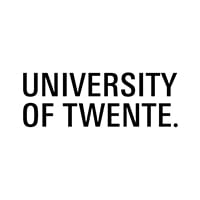Postdoctoral position: A CARtilage on CHIP model for precision medicine in osteoarthritis (CARCHIP)
Position Details (Postdoc)
Job description
CARCHIP will combine the expertise of the University of Twente (UTwente), chiron, Covaris, Stichting Proefdiervrij and the University of Maastricht (UM) to develop and implement a pioneering cartilage-on-chip model specifically designed for precision medicine in osteoarthritis (OA), the most common degenerative joint disease affecting more than 1.5 million Dutch citizens. To study OA patient heterogeneity at the molecular level, primary cells and tissues obtained from osteoarthritic patients will be endotyped using advanced mass spectrometry-based proteomics. Endotype specific primary cell cultures will be then established using animal free culture media and will be genetically modified with bioluminescent reporters for OA endotype in vitro modelling. These modified cells will be used to establish cartilage on chip cultures using a unique platform consisting of 24 cartilage on chip devices that can be simultaneously exposed to multidirectional loading mimicking cartilage forces in the moving human knee joint. We will validate this model by evaluating both established anti-inflammatory drugs and novel disease-modifying agents currently under development. Additionally, chiron will initiate essential steps toward the commercialization of this innovative platform, which has the potential to revolutionize the development of OA treatment strategies. By integrating advanced technologies such as MS and bioluminescent imaging with cutting-edge organ-on-chip models, the project aspires to enhance understanding of OA pathology and facilitate the development of targeted therapies. This approach not only aims to improve patient outcomes but also seeks to address the urgent need for more effective treatments for this prevalent condition which still cannot be treated effectively. Ultimately, the project will contribute significantly to the field of precision medicine, paving the way for personalized treatment plans that can better meet the needs of individuals suffering from OA, thereby reducing the overall healthcare burden associated with this chronic disease. Successful completion of the project will present the CARCHIP technology as a viable and more alternative for animal experimentation ultimately translating in a reduction of animal use..
Your profile
- Hold a PhD-degree in Biomedical Engineering, or an equivalent field of research with affinity for cell and molecular biology and micro-engineering;
- Experience in fabrication of organ on chips using photolithography, micromilling and biofabrication technologies as well as working with organ-on-chips and imaging of these devices will be considered as a benefit;
- Excellent analytical skills and an innate ability for solution oriented problem solving;
- Team player with great communication skills;
- Demonstrable leadership potential and experience in the supervision of bachelor and masterstudents;
- Fluent in English, both spoken and written.
Our offer
- You will be appointed for a period of 2 years full-time;
- Your salary and associated conditions are in accordance with the collective labour agreement for Dutch universities (CAO-NU);
- Gross salary between €4075,- and € 5.538,- per month depending on experience and qualifications;
- Excellent benefits including a holiday allowance of 8% of the gross annual salary, a year-end bonus of 8.3% and a solid pension scheme;
- Free access to sports facilities on campus;
- A minimum of 232 leave hours in case of full-time employment based on a formal workweek of 38 hours. A full-time employment in practice means 40 hours a week, therefore resulting in 96 extra leave hours on an annual basis;
- Excellent support for research and facilities for professional and personal development;
- We encourage a high degree of responsibility and independence, while collaborating with close colleagues, researchers and other university staff;
- We are also a family-friendly institution that offers parental leave (both paid and unpaid) and career support for partners.
Information and application
Please send your application via the ‘Apply now’ button, and include:
- A motivation letter describing why you apply for this position and for which of the three positions you are applying;
- A description of your research interests;
- A detailed CV;
- Academic transcripts from your Bachelor’s and Master’s degrees;
- Contact information (incl. email address) of at least two references who are willing to send a letter of recommendation on your behalf.
About the organisation
The Faculty of Science & Technology (Technische Natuurwetenschappen, TNW) engages some 700 staff members and 2000 students in education and research on the cutting edge of chemical technology, applied physics and biomedical technology. Our fields of application include sustainable energy, process technology and materials science, nanotechnology and technical medicine. As part of a people-first tech university that aims to shape society, individuals and connections, our faculty works together intensively with industrial partners and researchers in the Netherlands and abroad, and conducts extensive research for external commissioning parties and funders. Our research has a high profile both in the Netherlands and internationally and is strengthened by the many young researchers working on innovative projects with as doctoral candidates and post-docs. It has been accommodated in three multidisciplinary UT research institutes: Mesa+ Institute, TechMed Centre and Digital Society Institute.



 University of Twente
University of Twente